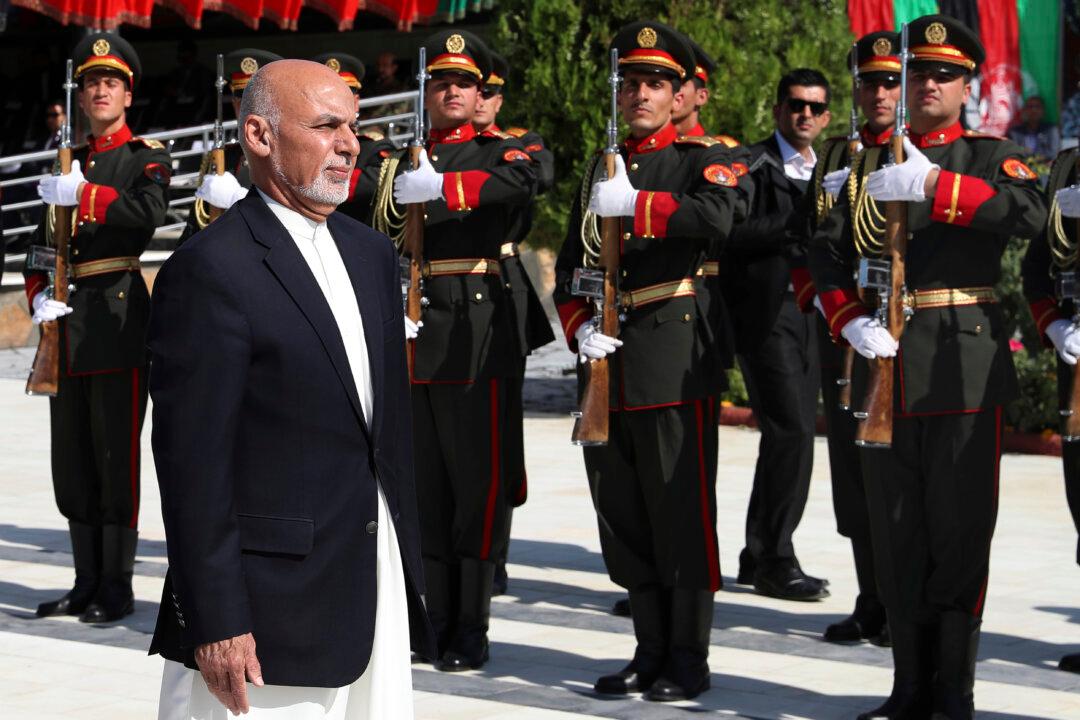Afghanistan’s President vowed on Monday, Aug. 19, to “eliminate” all safe havens of the ISIS terrorist group as the country marked a subdued 100th Independence Day after a horrific wedding attack claimed by the local ISIS affiliate.
President Ashraf Ghani’s comments came as Afghanistan mourns at least 63 people, including children, killed in the Kabul bombing at a wedding hall late Saturday night. Close to 200 others were wounded.





